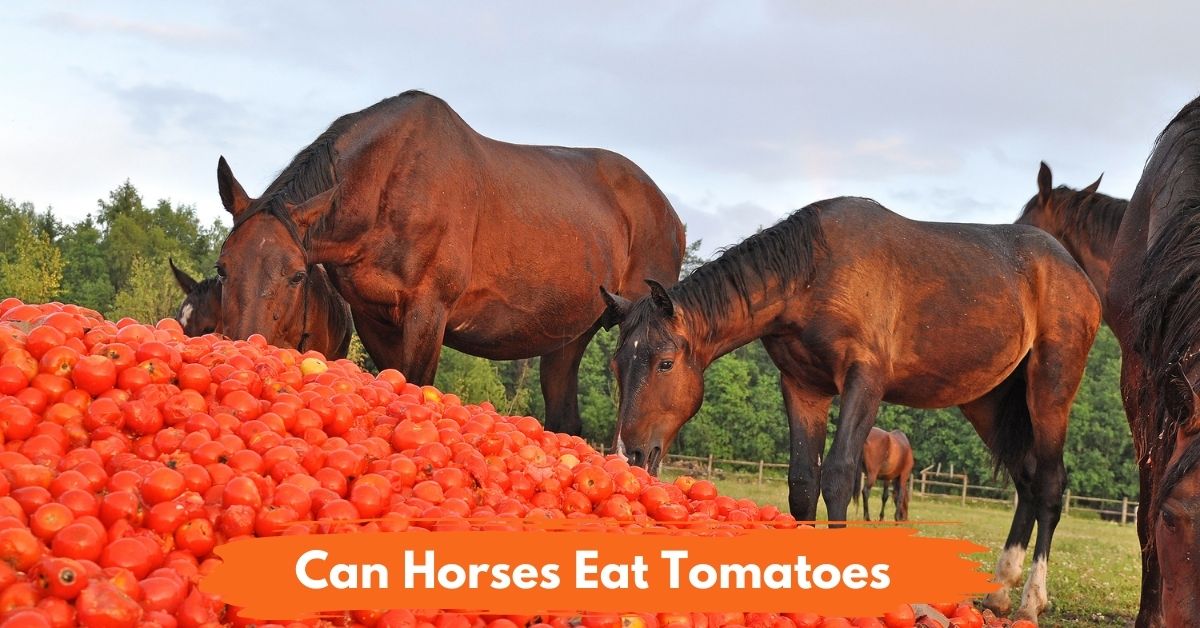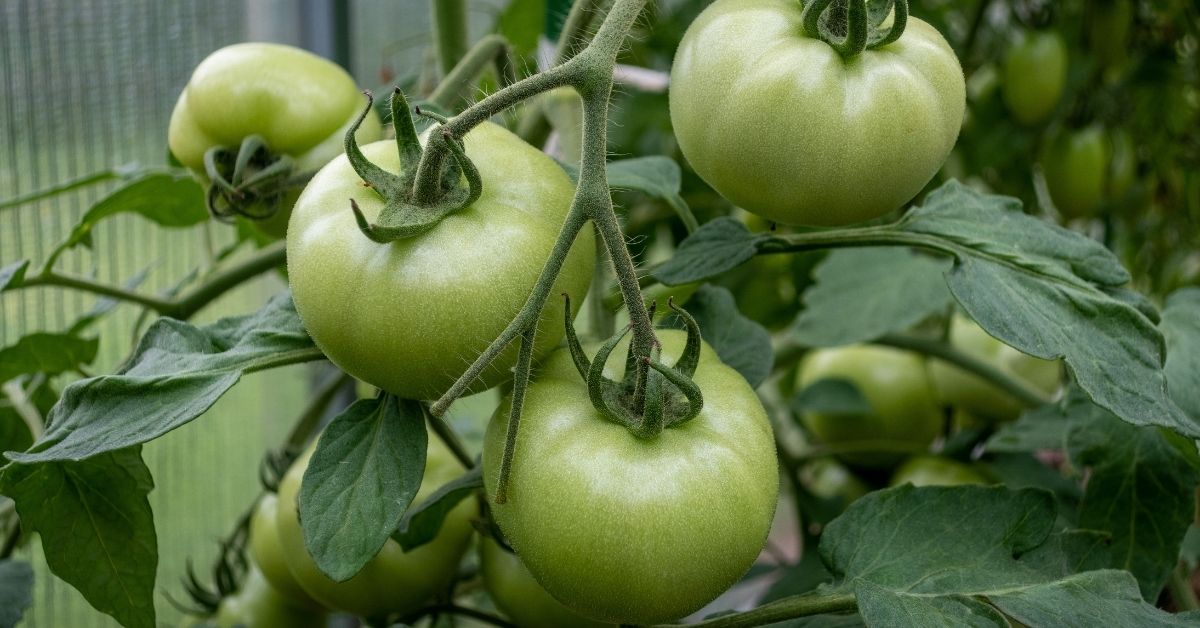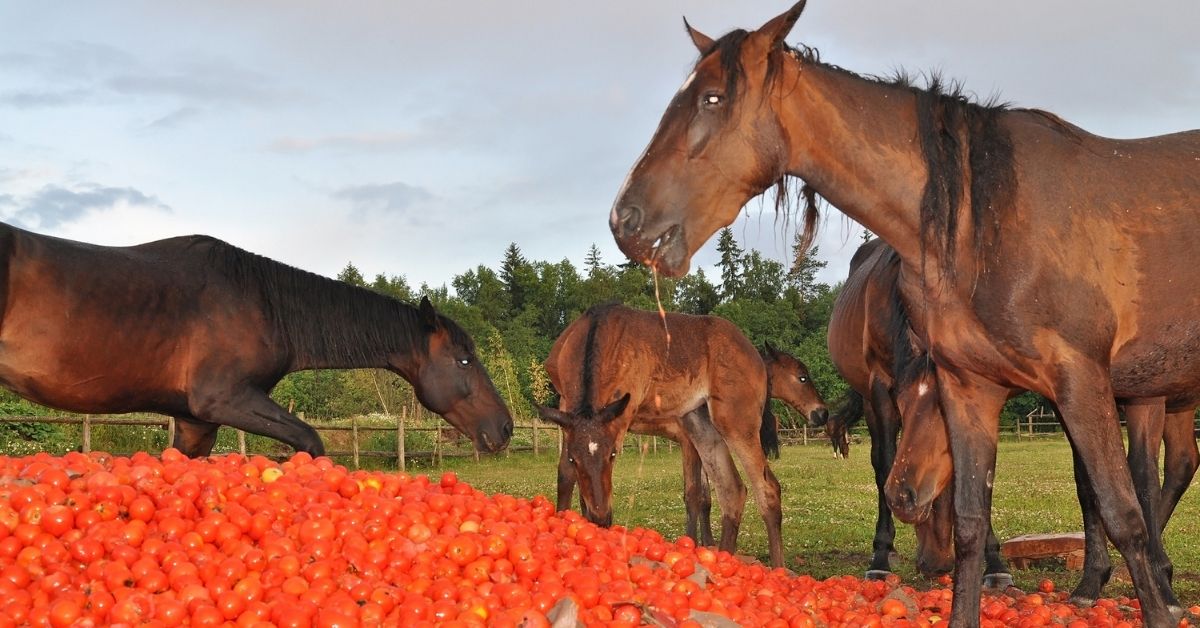
Horses can eat tomatoes when ripe and in a small serving. As a responsible horse owner, you must consider the amount of consumption. These fruits have toxins that afflict horses with different consequences.
These toxins trigger digestive issues and colic. They also cause swollen throats and abnormal saliva production. I know that tomatoes are one of the Nightshade plants that are toxic to horses. I’m meticulous about my horse’s diet, so I’m not clueless about it.
But I must say that I love sharing my fresh fruits and vegetables with my horses. I do further research about food before giving them to my horses.
Not all fruits and vegetables a human eats are suitable for horses. Keep it in mind! You may be in a dilemma knowing that horses can eat ripe tomatoes, but these fruits contain toxins. Read on to know the exact details about the suitability of tomatoes for a horse’s diet.
Are Tomatoes Safe For Horses
In pasture management, plants from the Nightshade family are on the list of toxic plants. As a Nightshade plant, tomatoes are not safe for horses. The leaves and shoots have a considerable amount of solanine, a toxic glycoalkaloid. But unripe fruits have the toxin too.
Thus, the whole tomato plant and its fruits are not safe for horses. Note that one to ten pounds of tomatoes can activate the toxic symptoms. The affected areas are the gastrointestinal tract and central nervous system.
The toxic symptoms are diarrhea, loss of muscle coordination, and dilation of pupils. Some horses will display convulsions, depression, and hallucinations. They won’t eat and feel weak as well.
Can Horses Eat Green Tomatoes

Horses consume green vegetables like lettuce and celery. Does it mean horses can eat green tomatoes too? The answer is no. Green, unripe tomatoes contain tomatine, an alkaloid that is like solanine.
Tomatine is toxic to herbivores like horses. It causes vomiting, diarrhea, and intestinal irritation. There’s a turn of events in a study. The result shows that this toxin disappears as the fruits ripen.
Tomatine is still in ripe tomatoes but in a low amount. You’re sure that tomatoes don’t have toxins if you grow them. But it’s a different case from the ones in the market. You can’t be so sure about what you buy in the market.
Since ripe tomatoes are 94% water and 6% dry matter, they have a short shelf life. It also means molds and mycotoxins can form, especially under warm-humid conditions. The low dry matter in tomatoes makes them lose their freshness in time.
Thus, molds and mycotoxins can alter the digestive system of the equine. You may sometimes see the tomatoes in a perfect smoothness. But when you cut it open, you can find a soft rot lesion.
So, you have to inspect the ripe tomatoes by cutting them. It’s a necessary step as you need to feed your horses small pieces of food to prevent choking.
Can Horses Eat Cherry Tomatoes
Horses can eat ripe cherry tomatoes, which are small in size but flavorful. Due to their small size, they have earlier harvest time than other tomatoes. The size is also helpful when feeding your horses, as a few ripe tomatoes don’t pose a threat. The small size paves the way for high yield too!
It’s essential to know the color of ripe cherry tomatoes since it’s a safe state for horse consumption. Most of them have a bright red color when ripened. But some varieties are orange or yellow.
Be aware of possible risks. Cherry tomatoes are not different from other tomatoes. They’re not free from toxins even though they’re small. Their leaves, stems, and unripe fruits have tomatine and solanine.
But some information bothers me. USDA has a list of pesticides that they found in cherry tomatoes. The organic ones are an exemption from this report. You have to be sure that the tomatoes you give your horses are organic.

Can Horses Eat Grape Tomatoes
Since grape tomatoes are a variety of cherry tomatoes, horses can eat them. Again, only feed ripe grape tomatoes to your horses, as the unripe ones are toxic. The same thing goes with its leaves and stems.
The Cherry tomato is a cross of domesticated garden variety and the current type. Then, it has different varieties, like the ones with yellow, black, and green hues. One of them is a grape tomato that has an oblong shape with prominent plum characteristics.
When it ripens, it is bright red, like cherry tomatoes. The shape is not the only difference between these tomatoes. Grape tomatoes are only half the size of cherry tomatoes that range from 25 to 35 mm.
Do Horses Like to Eat Tomatoes?
Horses don’t like to eat tomato plants. It gives a feeling of relief to horse owners. But, they can go for it if there’s an inadequate food source.
Even though your horses are always full, you have to check the grazing area for toxic plants. It’s not only tomatoes but the other members of the Nightshade family.
Ripe tomatoes are appealing to some horses. It’s OK, as ripe ones have only a tiny amount of tomatine. Even though toxins are gone when tomatoes ripen, your horses should only eat a small quantity.
Are Tomatoes Bad For Horses?
The unripe fruit, green calyx, leaves, and stems make tomatoes bad for horses. They have a high amount of solanine, a toxic substance to horses. Once ingested a lot, a horse experiences a disruption in its digestive system.
Horses don’t have a stomach with a two-way system. So they can’t throw up the harmful substance that they swallow. The toxin will limit gut mobility until it develops into colic. Things will get worse for your horse.
Solanine can weaken the heart and respiration of a horse. The animal appears weak and helpless until it can’t stand it. Hyoscyamine toxin is also present in tomatoes. It induces excessive salivating in our horses.

Are Tomatoes Good For Horses?
Ripe tomatoes are suitable for horses. Toxins wane when the tomatoes ripen, so your horses can get the nutrients they contain. A ripe tomato is 95% water, 4% carbohydrates, and only 1% protein and fat.
It shows that ripe tomatoes are a refreshing treat as it has a lot of water. They’re also a source of Vitamin C that boosts the horse’s immune system. It can also fight free radicals.
A hundred grams of raw, ripe tomatoes provide 18% calories. Still, tomatoes can’t result in overweight horses. With all the goodness of ripe tomatoes, you have to limit the amount that your horses consume. Give ripe tomatoes as a treat now and then.
Even though ripe tomatoes are safe for moderate consumption, you must be careful. Wash them well to remove harmful chemicals and residue. You have to see that there’s no mold, as mycotoxin can make a horse sick. Cut or slice the ripe tomatoes before serving to check if there’s mold or rot.
Are Tomatoes Poisonous to Horses?
Yes, tomatoes can be poisonous to horses. The stems, leaves, unripe fruit, and the leaves on the top of the fruit can cause solanine poisoning. So, be aware that your horses eat outside. Please don’t give them roughage or treats, including tomato plants and unripe fruits.
There are several symptoms of solanine poisoning. You have to know them if you ever missed knowing that your horse ate tomato plants. The symptoms are hypersalivation, dilated pupils, weakness, drowsiness, confusion, and muscle coordination. Your horse will lose its appetite too.
These symptoms affect the digestive system and nervous system of an equine. You’ll know as diarrhea and constipation take place. The display of nervousness and depression should alarm you. You must contact a veterinarian to reverse the symptoms and make the horse feel better.
The veterinarian requires urinalysis and blood tests to diagnose. Poisoned horses receive drugs that stop the digestive tract from absorbing the toxins.
Conclusion
You may have heard or read about the information that tomatoes are toxic to horses. I clarified in this article that toxins are gone once the tomatoes ripen. Still, the amount that you give your horses should be minimal.
As you know, there’s an array of tomato varieties that you can find. Before feeding some to your horses, ensure you know the variety to determine its ripeness. It’s much better to be cautious than to call a veterinarian for help.
